
Lalibela: Ethiopia's Ancient Spiritual Heart
Nestled in the northern highlands of Ethiopia, Lalibela is a city like no other. Renowned for its rock-hewn churches, Lalibela is often referred to as the 'New Jerusalem' and remains a vital pilgrimage site for Ethiopian Orthodox Christians. The city's eleven medieval monolithic cave churches are a testament to the architectural ingenuity and spiritual dedication of the people who built them in the 12th century. Visitors can wander through these awe-inspiring structures, each connected by a series of tunnels, and soak in the centuries-old ambiance that permeates every stone. Beyond its historical and religious significance, Lalibela offers breathtaking natural scenery. Surrounded by rugged mountains and lush valleys, the city provides ample opportunities for hiking and exploring the Ethiopian countryside. The local community is warm and welcoming, eager to share their rich cultural heritage with visitors. Traditional music, dance, and local cuisine provide a vibrant backdrop to your stay, making it an experience that appeals to both the soul and the senses. Lalibela is also a gateway to understanding Ethiopia's diverse history. The city is a living museum where ancient traditions and modern life coexist harmoniously. Whether you're marveling at the architectural marvels, enjoying a traditional coffee ceremony, or simply strolling through the bustling markets, Lalibela offers a unique blend of historical depth and cultural richness that leaves an indelible mark on all who visit.
Local tips in Lalibela
- Visit during Ethiopian Orthodox holidays like Christmas and Timkat to witness vibrant religious ceremonies.
- Wear comfortable shoes for exploring the rock-hewn churches and surrounding areas.
- Hire a knowledgeable local guide to enhance your understanding of the historical and religious significance of the sites.
- Try traditional Ethiopian dishes like injera and doro wat at local restaurants.
- Bring a good camera to capture the stunning landscapes and intricate church carvings.
Lalibela: Ethiopia's Ancient Spiritual Heart
Nestled in the northern highlands of Ethiopia, Lalibela is a city like no other. Renowned for its rock-hewn churches, Lalibela is often referred to as the 'New Jerusalem' and remains a vital pilgrimage site for Ethiopian Orthodox Christians. The city's eleven medieval monolithic cave churches are a testament to the architectural ingenuity and spiritual dedication of the people who built them in the 12th century. Visitors can wander through these awe-inspiring structures, each connected by a series of tunnels, and soak in the centuries-old ambiance that permeates every stone. Beyond its historical and religious significance, Lalibela offers breathtaking natural scenery. Surrounded by rugged mountains and lush valleys, the city provides ample opportunities for hiking and exploring the Ethiopian countryside. The local community is warm and welcoming, eager to share their rich cultural heritage with visitors. Traditional music, dance, and local cuisine provide a vibrant backdrop to your stay, making it an experience that appeals to both the soul and the senses. Lalibela is also a gateway to understanding Ethiopia's diverse history. The city is a living museum where ancient traditions and modern life coexist harmoniously. Whether you're marveling at the architectural marvels, enjoying a traditional coffee ceremony, or simply strolling through the bustling markets, Lalibela offers a unique blend of historical depth and cultural richness that leaves an indelible mark on all who visit.
When is the best time to go to Lalibela?
Iconic landmarks you can’t miss
Church of St. George
Discover the stunning rock-hewn Church of St. George in Lalibela, a UNESCO World Heritage site showcasing Ethiopia's rich cultural and religious history.
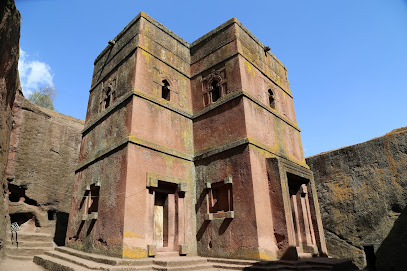
Ben Abeba
Experience authentic Ethiopian cuisine with breathtaking views at Ben Abeba, a unique restaurant in Lalibela that delights every palate.

Rock-Hewn Churches, Lalibela
Explore the Rock-Hewn Churches of Lalibela, a UNESCO Heritage site showcasing Ethiopia's rich history and extraordinary rock-carved architecture.
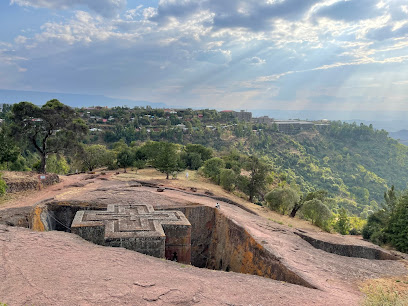
Sora Lodge Lalibela 4 Stars
Experience the heart of Ethiopian culture at Sora Lodge Lalibela, your gateway to historic rock-hewn churches and authentic local cuisine.

Tukul Village
Discover the enchanting Tukul Village in Lalibela, a serene retreat blending traditional Ethiopian charm with modern comfort amidst stunning landscapes.

Bete Medhane Alem
Explore Bete Medhane Alem, Lalibela's magnificent rock-hewn church, a masterpiece of medieval architecture and a vital spiritual center in Ethiopia.
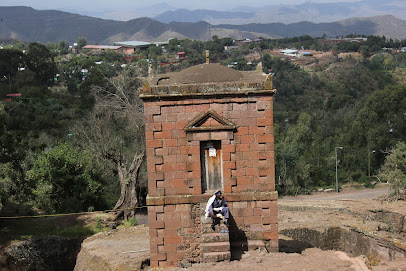
Lalibela Hotel
Discover the comfort and cultural charm of Lalibela Hotel, your perfect retreat near Ethiopia's iconic rock-hewn churches.

Bete Amanuel
Explore Bete Amanuel, Lalibela's architectural marvel, blending rich history and spiritual heritage in Ethiopia's sacred heart.
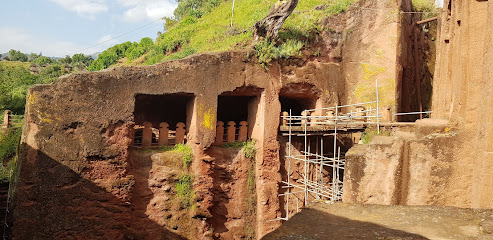
Maribela Hotel Lalibela
Discover comfort and cultural heritage at Maribela Hotel, your gateway to the stunning rock-hewn churches of Lalibela.

Bete Abba Libanos
Discover the spiritual essence of Ethiopia at Bete Abba Libanos, a remarkable rock-hewn church in Lalibela, rich in history and architectural wonder.
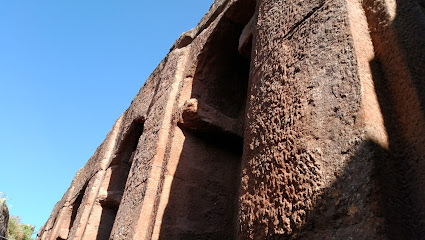
Asheton St. Maryam Monastery | አሽተን ቅድስት ማርያም ገዳም
Discover the spiritual essence of Ethiopia at Asheton St. Maryam Monastery, a historical site offering breathtaking views and rich cultural heritage.
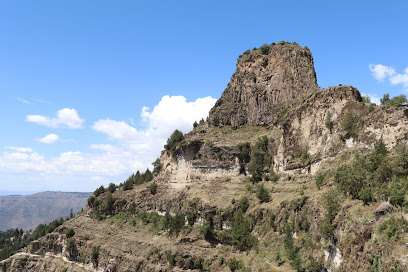
Bete Maryam
Discover Bete Maryam, a stunning rock-hewn church in Lalibela that reveals the essence of Ethiopian spirituality and architectural brilliance.
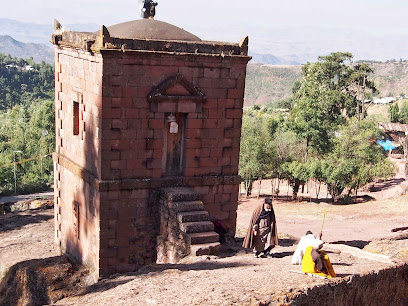
Tomb of Adam
Discover the Tomb of Adam in Lalibela, Ethiopia, a sacred site of immense historical and spiritual significance, steeped in Christian heritage.
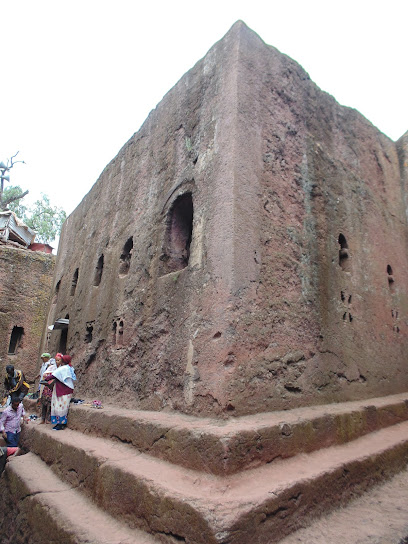
FikirandRay Lodge
Discover serenity and cultural richness at FikirandRay Lodge in Lalibela, Ethiopia - your gateway to the iconic rock-hewn churches and stunning landscapes.

Beta Gabriel Raphael ቤተ ገብርኤል ወሩፋኤል
Discover the architectural marvel of Beta Gabriel Raphael Church in Lalibela, a UNESCO World Heritage site and spiritual haven in Ethiopia's highlands.
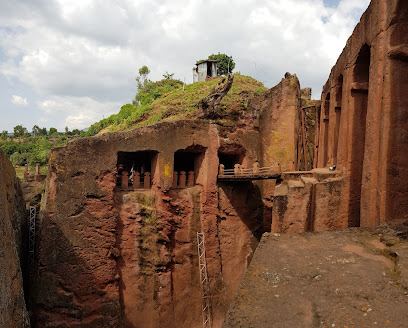
Unmissable attractions to see
Rock-Hewn Churches, Lalibela
Explore the Rock-Hewn Churches of Lalibela, a UNESCO World Heritage site, where history and spirituality come alive in Ethiopia's stunning landscape.
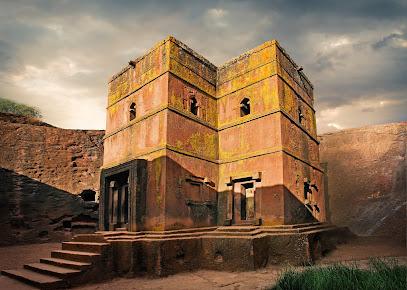
Bete Amanuel
Experience the profound spiritual and architectural beauty of Bete Amanuel, a rock-hewn church that embodies Ethiopia's rich religious heritage.
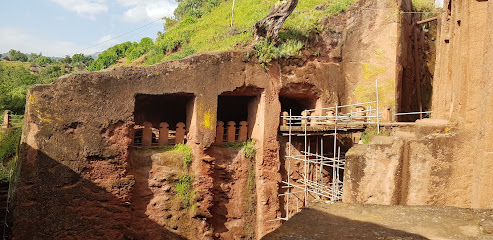
Dan Lalibela Tour Guide Services
Experience the rich heritage of Lalibela with expert guidance from Dan Lalibela Tour Guide Services - your gateway to Ethiopia's ancient wonders.
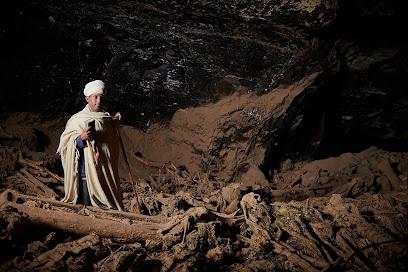
Yemrehana Krestos Church | ይምርሃነ ክርስቶስ ቤተክርስቲያን
Explore the ancient Yemrehana Krestos Church in Degosay, Ethiopia, a stunning example of rock-hewn architecture and rich Orthodox traditions.
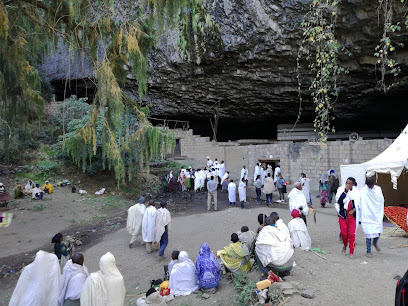
Asheton St. Maryam Monastery | አሽተን ቅድስት ማርያም ገዳም
Explore the breathtaking Asheton St. Maryam Monastery in Lalibela, Ethiopia, a spiritual haven rich in history and stunning rock-hewn architecture.
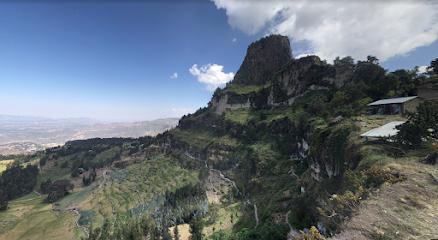
Tomb of Adam
Discover the Tomb of Adam in Lalibela, a sacred site steeped in Christian history and remarkable rock-hewn architecture, offering a serene pilgrimage for all travelers.
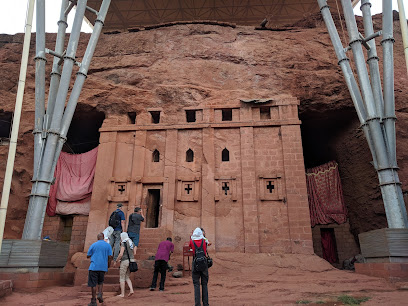
Lalibela Eco Trekking Tours - Ethiopia
Experience the breathtaking landscapes and rich culture of Lalibela with Eco Trekking Tours, your gateway to unforgettable adventures in Ethiopia.
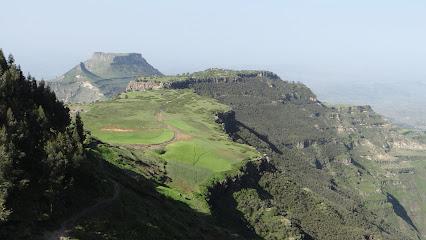
Lalibela Museum
Discover the heart of Ethiopia's culture and history at Lalibela Museum, home to ancient artifacts and narratives that enrich your travel experience.
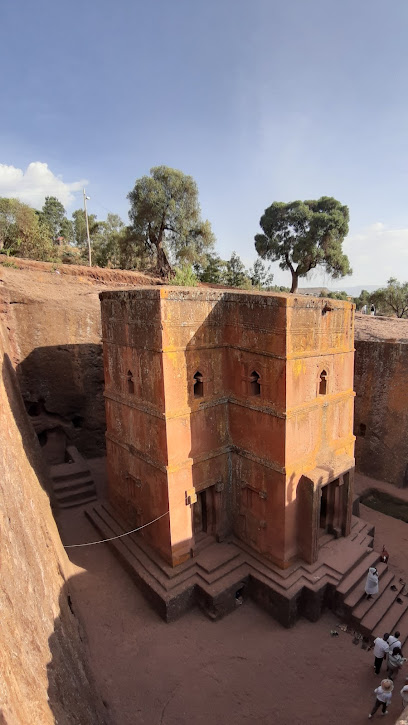
Lalibela Ethiopia tours
Explore the spiritual heart of Ethiopia with expert-led tours in Lalibela, home to magnificent rock-hewn churches and rich cultural experiences.
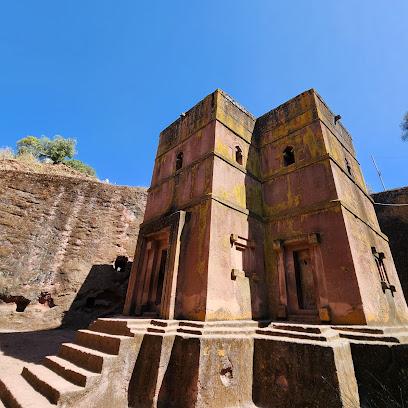
Bete Golgota-Selassié
Explore the stunning Bete Golgota-Selassie in Lalibela, Ethiopia, a UNESCO World Heritage site and a cornerstone of Ethiopian heritage.
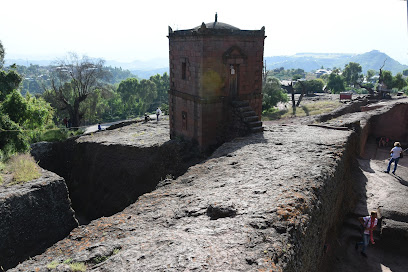
Highland Eco Trekking Tours Ethiopia
Explore the stunning Ethiopian Highlands with Highland Eco Trekking Tours, where adventure meets cultural immersion in Lalibela's breathtaking landscapes.
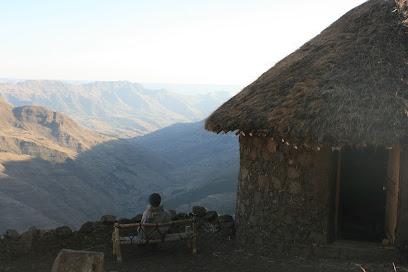
Access Eco Trekking Tours
Explore Lalibela's breathtaking landscapes and rich culture with Access Eco Trekking Tours - a sustainable travel experience in Ethiopia.
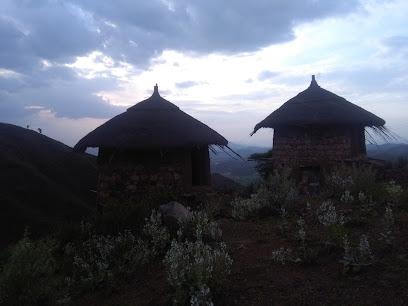
Yared lalibela churches Tour guide
Explore the rock-hewn churches of Lalibela, a UNESCO World Heritage site, with expert guides for an unforgettable spiritual journey in Ethiopia.
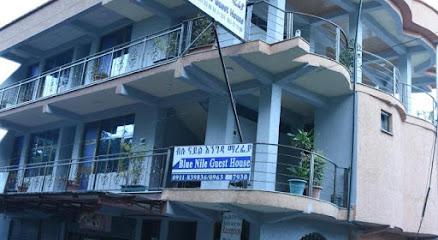
Go Lalibela Tours
Explore the rich heritage of Lalibela with Go Lalibela Tours, offering unforgettable experiences at Ethiopia's iconic rock-hewn churches.

Ethiopian Endemic Birdwatching Lalibela
Experience the breathtaking avian diversity at Ethiopian Endemic Birdwatching in Lalibela, a paradise for birdwatchers and nature lovers alike.
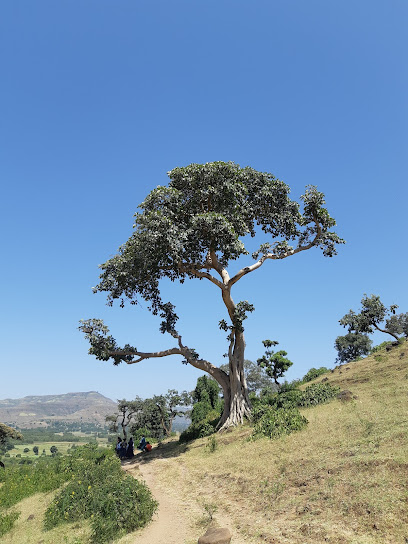
Essential places to dine
Ben Abeba
Experience authentic Ethiopian cuisine with breathtaking views at Ben Abeba in Lalibela.
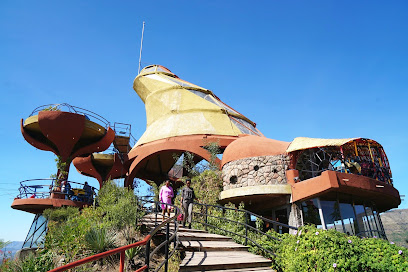
Sora Lodge Lalibela 4 Stars
Experience authentic Ethiopian cuisine and warm hospitality at Sora Lodge Lalibela, your gateway to exploring Ethiopia's cultural treasures.

Kana Restaurant and Bar
Experience authentic Ethiopian cuisine at Kana Restaurant and Bar in Lalibela, where every dish tells a story.
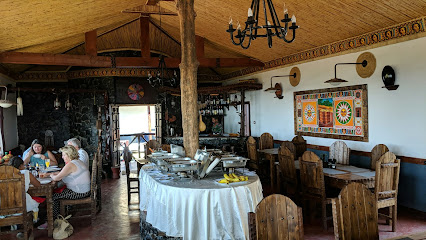
Ma'ed Lalibela Restaurant
Experience authentic Ethiopian cuisine at Ma'ed Lalibela Restaurant, where every dish tells a story of tradition and flavor.
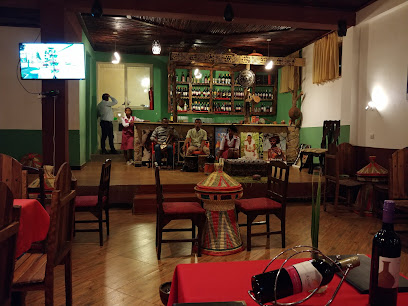
Unique Restaurant
Discover authentic Ethiopian cuisine at Unique Restaurant in Lalibela—where every meal tells a story of culture and tradition.
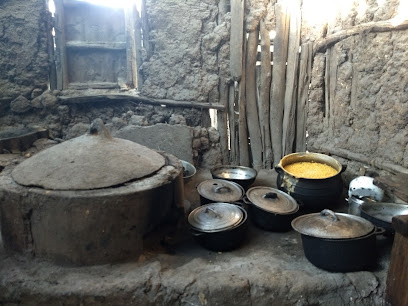
Segenet cafe and restaurant
Experience authentic Ethiopian cuisine at Segenet Cafe and Restaurant in Lalibela, where every dish tells a story.
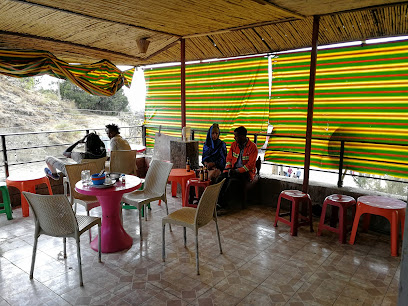
Mezana Lodge
Experience authentic Ethiopian cuisine at Mezana Lodge in Lalibela - where culture meets culinary excellence.
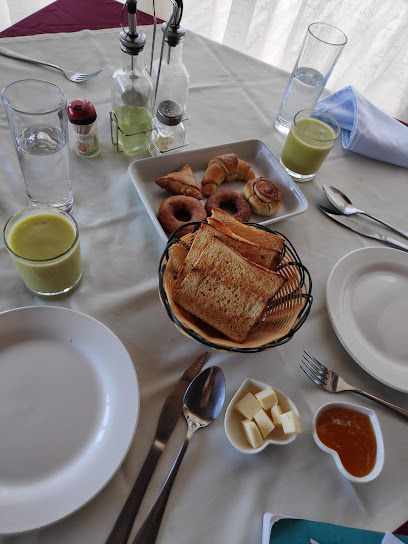
Lalibela Restaurant
Experience authentic Ethiopian cuisine at Lalibela Restaurant, where tradition meets flavor in every dish.
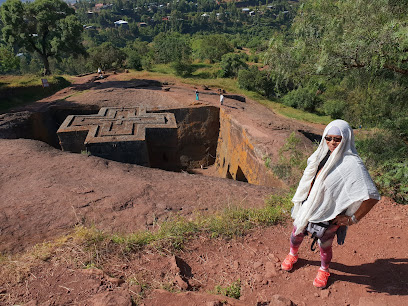
Blue Nile Hotel
Savor authentic Ethiopian flavors at Blue Nile Hotel in Lalibela - where tradition meets taste in a cozy atmosphere.

XO Restaurant
Experience authentic Ethiopian cuisine at XO Restaurant in Lalibela - a cultural gem offering traditional flavors in a welcoming setting.
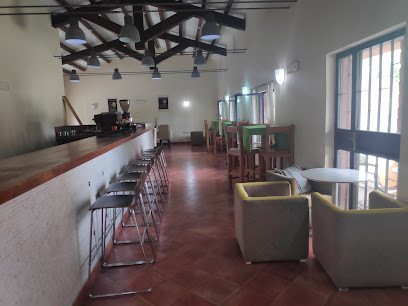
Alem cooking class bar and restaurant
Experience authentic Ethiopian cuisine at Alem Cooking Class Bar and Restaurant in Lalibela – where cooking meets culture.
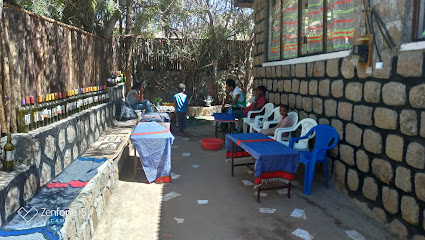
Bisrat Cafe
Experience authentic Ethiopian cuisine at Bisrat Cafe in Lalibela – where tradition meets flavor in a cozy setting.
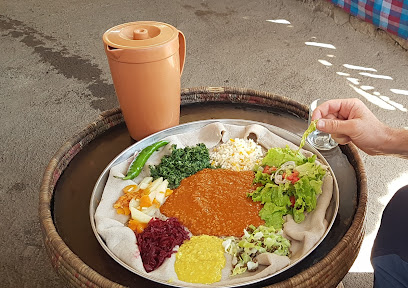
Selina restaurant
Experience authentic Ethiopian cuisine at Selina Restaurant in Lalibela - a culinary haven for every traveler seeking local flavors.
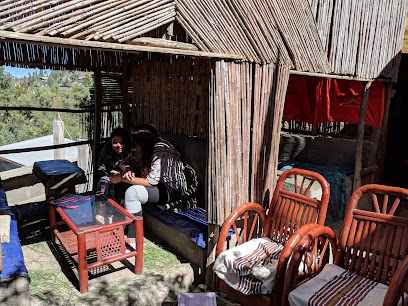
Friends Zone Restaurant
Experience authentic Ethiopian cuisine at Friends Zone Restaurant in Lalibela - where tradition meets taste in every dish.
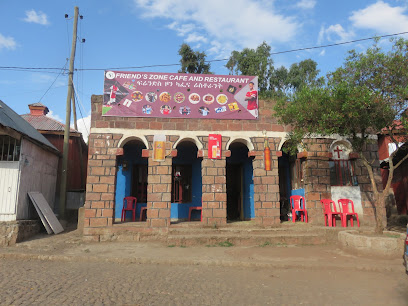
Lasta Café
Discover authentic Ethiopian flavors at Lasta Café in Lalibela – where tradition meets taste in a welcoming atmosphere.
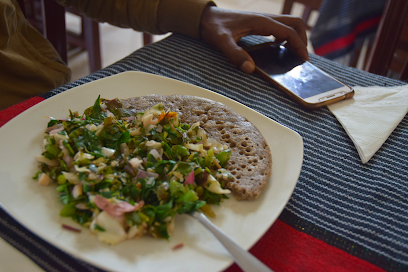
Markets, malls and hidden boutiques
Church of St. George
Discover the awe-inspiring Church of St. George in Lalibela, an architectural marvel and spiritual heart of Ethiopia's rock-hewn churches.
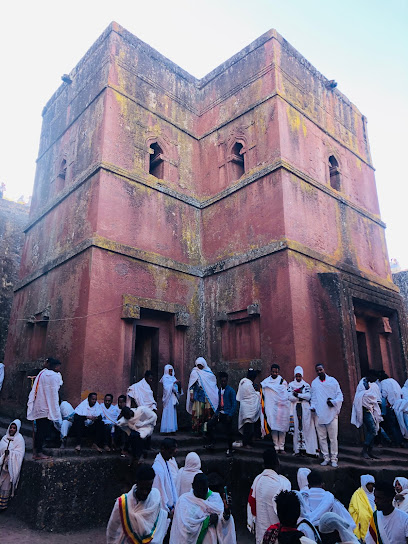
Rock-Hewn Churches, Lalibela
Explore the extraordinary Rock-Hewn Churches of Lalibela, a masterpiece of medieval architecture and a profound spiritual site in Ethiopia.
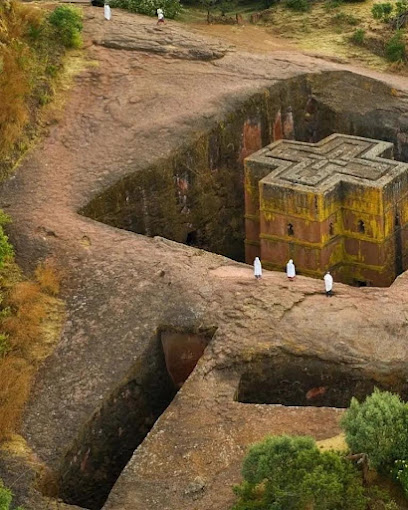
Tukul Village
Immerse yourself in the unique charm of Tukul Village, a traditional Ethiopian hotel experience in the heart of Lalibela, surrounded by breathtaking landscapes.

Bete Medhane Alem
Explore the breathtaking Bete Medhane Alem, a UNESCO World Heritage site and architectural marvel in Lalibela, Ethiopia, a must-visit for travelers.
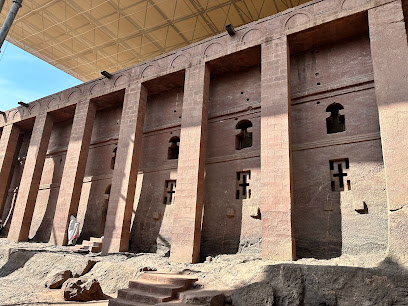
Lalibela Hotel
Discover the charm of Lalibela at Lalibela Hotel, your gateway to Ethiopia's rich history and breathtaking landscapes.

Bete Abba Libanos
Explore Bete Abba Libanos, a stunning rock-hewn church in Lalibela, Ethiopia, known for its rich history and breathtaking architecture.
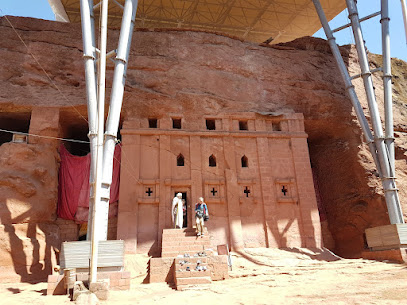
Bete Maryam
Explore Bete Maryam in Lalibela, a masterpiece of rock-hewn architecture and a spiritually enriching experience in Ethiopia.
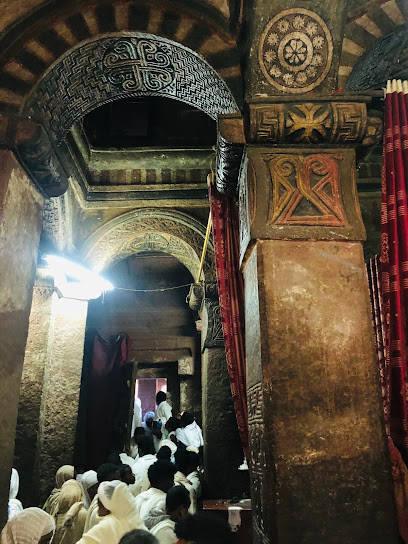
Honey Land Hotel Lalibela
Experience the warmth of Ethiopian hospitality at Honey Land Hotel, your gateway to the wonders of Lalibela's rock-hewn churches.

Tomb of Adam
Discover the Tomb of Adam in Lalibela, a sacred site blending spirituality, history, and stunning rock-hewn architecture.
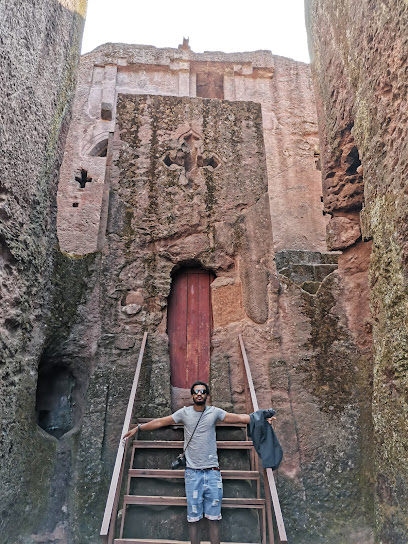
All In One Souvenir & Gift Shop
Explore All In One Souvenir & Gift Shop for authentic Ethiopian gifts and unique treasures in the heart of Addis Ababa.
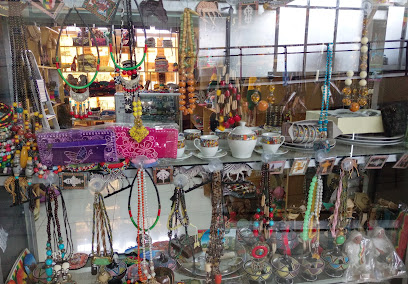
Abdi Negash Antique Store
Discover unique antiques, rare books, and vibrant art at Abdi Negash Antique Store in Addis Ababa, where history meets culture.
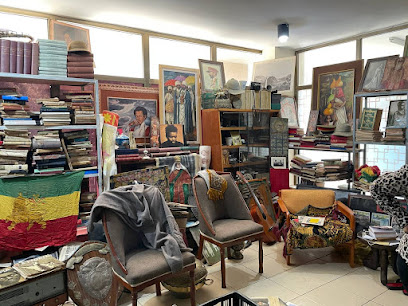
Fikr Juice House
Experience the refreshing flavors of Ethiopia at Fikr Juice House, your go-to cafe for delicious juices in the heart of Lalibela.
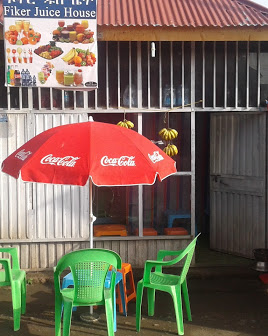
Alem cooking class bar and restaurant
Experience authentic Ethiopian cuisine and hands-on cooking classes at Alem Cooking Class Bar and Restaurant in Lalibela, a culinary gem in the heart of Ethiopia.
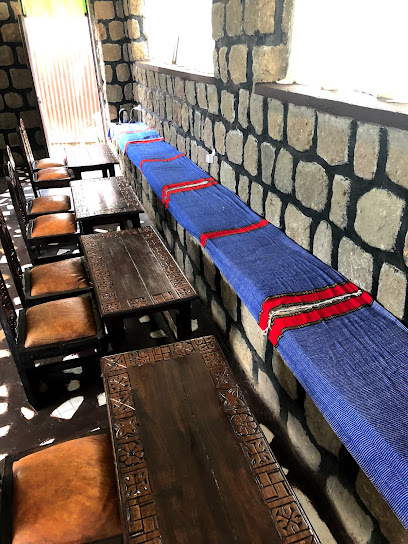
Ellilta Products
Explore Ellilta Products in Addis Ababa for authentic Ethiopian handicrafts and unique souvenirs that reflect the rich culture and artistry of Ethiopia.
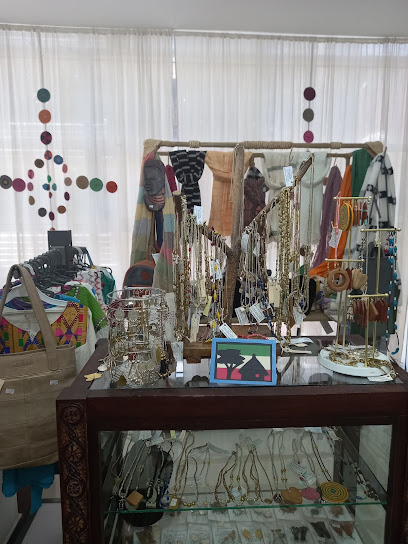
Hadas Souvenirs Shop Lalibela
Discover unique Ethiopian crafts at Hadas Souvenirs Shop in Lalibela, your destination for authentic gifts and cultural treasures.
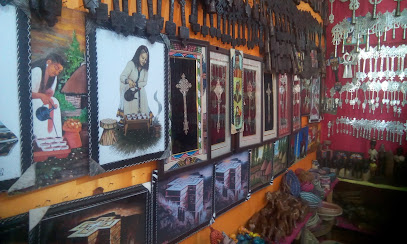
Essential bars & hidden hideouts
Ben Abeba
Experience the best of Ethiopian cuisine with stunning views at Ben Abeba in Lalibela, a culinary destination that enchants every visitor.
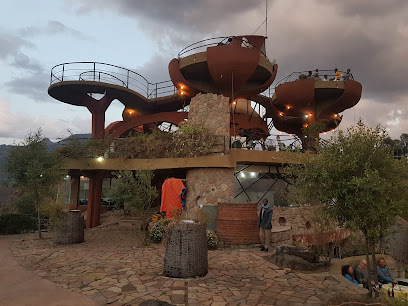
Sora Lodge Lalibela 4 Stars
Experience the perfect blend of gourmet dining and stunning views at Sora Lodge Lalibela, your gateway to Ethiopian culture and cuisine.

Kana Restaurant and Bar
Experience the authentic flavors of Ethiopia at Kana Restaurant and Bar in Lalibela, where culinary tradition meets warm hospitality.
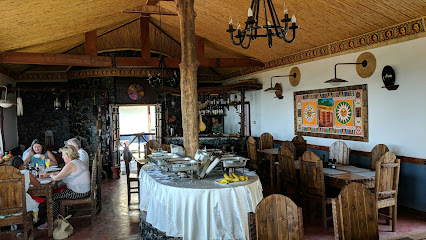
Lalibela Hotel
Discover the heart of Lalibela at Lalibela Hotel, your cozy retreat amidst historic wonders and local charm.

Lal Hotel
Experience the charm of Lalibela at Lal Hotel, where comfort meets history in Ethiopia's cultural heart.

Ma'ed Lalibela Restaurant
Experience the rich flavors of Ethiopia at Ma'ed Lalibela Restaurant, where every meal tells a story of tradition and culture in Lalibela.
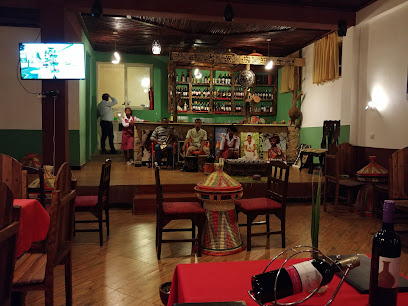
Zagwe Hotel
Experience the tranquility and charm of Zagwe Hotel, your gateway to the historical treasures and stunning landscapes of Lalibela, Ethiopia.
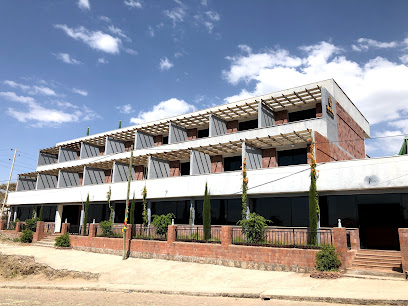
Torpido (Askalech) Tej House
Discover the essence of Ethiopia at Torpido Tej House, where traditional tej, music, and dance create an unforgettable cultural experience.
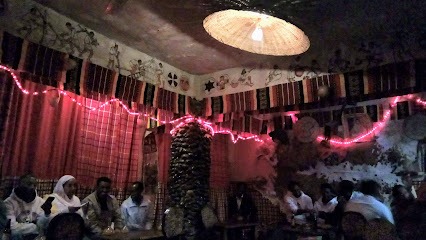
Roha Hotel
Discover comfort and cultural heritage at Roha Hotel, your ideal base to explore the fascinating rock-hewn churches of Lalibela.

LALIBELA LODGE
Experience the serene beauty and rich history of Lalibela at Lalibela Lodge, your perfect Ethiopian getaway with breathtaking views.

Lalibela Restaurant
Discover the vibrant flavors of Ethiopia at Lalibela Restaurant, a culinary highlight in the heart of Lalibela, perfect for any food lover.
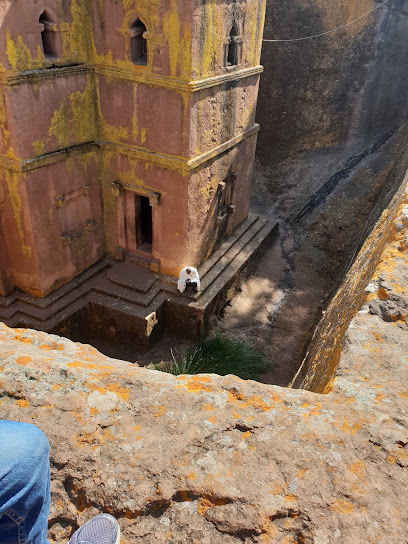
Blue Nile Hotel
Experience the authentic flavors of Ethiopian cuisine at Blue Nile Hotel in Lalibela, where every meal tells a story.

Fikr Juice House
Discover the vibrant flavors of fresh juices at Fikr Juice House, a charming cafe in the heart of Lalibela, Ethiopia.
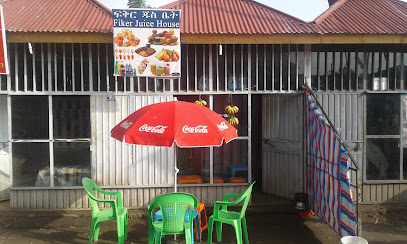
XO Restaurant
Experience the authentic flavors of Ethiopian cuisine at XO Restaurant, a culinary gem in the heart of Lalibela.
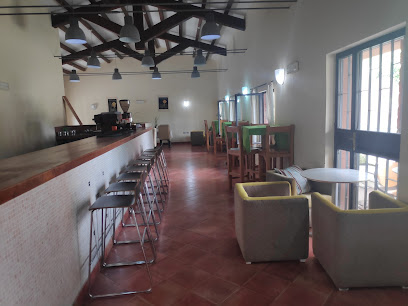
Alem cooking class bar and restaurant
Experience the rich flavors of Ethiopian cuisine through hands-on cooking classes and delightful dishes at Alem Cooking Class Bar and Restaurant in Lalibela.
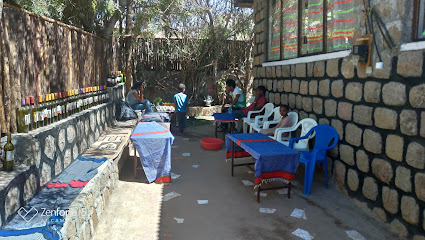
Travel experiences inspired by this city
Explore more travel diariesLocal Phrases
-
- Helloሰላም
[sälam] - Goodbyeይህበል
[yihbel] - Yesአዎ
[awo] - Noአይ
[ay] - Please/You're welcomeእባክዎ
[ebakwo] - Thank youአመሰግናለሁ
[ameseginalehu] - Excuse me/Sorryአዝናለሁ
[aznalehu] - How are you?እንዴት ነህ?
[indet neh?] - Fine. And you?በትክልት ነኝ. እኔስ እርስማችን?
[betekilt nega. enesi eresamachan?] - Do you speak English?እንቅስቃሴ ይፈልጉሃል?
[enqesekase yefelguhale?] - I don't understandአልተናገም
[altenagem]
- Helloሰላም
-
- I'd like to see the menu, pleaseምን እንዴት መሸጫ እንደሚሰጥ ይህን ማስተዋል
[min indet meshcha endemiset yihin masitewal] - I don't eat meatከምኡ ምግብ አይከብር
[kemu migib aykebir] - Cheers!ሰላም!
[sälam!] - I would like to pay, pleaseእባክዎ እንዴት መገኘት ማስተዋል
[ebakwo indet magenit masitewal]
- I'd like to see the menu, pleaseምን እንዴት መሸጫ እንደሚሰጥ ይህን ማስተዋል
-
- Help!እርሱ!
[ersu!] - Go away!መለስ!
[mels!] - Call the Police!ፖሊስ አይደለም!
[polis aydelem!] - Call a doctor!ሰላም ስራህ!
[salam sirah!] - I'm lostተወርድሽ
[tewerdish] - I'm illእኔ ሱሳሕ ነኝ
[ene susah nega]
- Help!እርሱ!
-
- I'd like to buy...እንዴት ምግብ እጠብቃለሁ...
[indet migib etebekalehu...] - I'm just lookingእኔ በዚህ ተወዳጄ ነኝ
[ene bezih tewadaje nega] - How much is it?ብዙ ነው?
[busu new?] - That's too expensiveተሸጥሞ ለማየት ነው
[teshetmo lemayet new] - Can you lower the price?መጠን ፈልገህ ትላለህ?
[meten felgeha tlaleh?]
- I'd like to buy...እንዴት ምግብ እጠብቃለሁ...
-
- What time is it?ሰዓት ነበር?
[säat neber?] - It's one o'clockአንድ ሰዓት ነው
[and säat new] - Half past (10)አንድ ሰዓት ከፍተኛው
[and säat keftengaw] - Morningጥዎት
[tiwot] - Afternoonከምሽቱ
[kemishtu] - Eveningማተቻሃል
[matichahal] - Yesterdayትእምር
[tiemir] - Todayዛሬ
[zar] - Tomorrowማርች
[march] - 1አንድ
[and] - 2ሁለት
[hulet] - 3ሦስት
[sost] - 4አራት
[arat] - 5አምስት
[amsot] - 6ስድስት
[sidist] - 7ሰባት
[sebat] - 8ሃምሌ
[hamle] - 9አስራት
[asrat] - 10ሰላም
[salam]
- What time is it?ሰዓት ነበር?
-
- Where's a/the...?ወደበተኛች ነበር?
[wede betegnach neber?] - What's the address?አᡀበና ነህ?
[ahbenah neh?] - Can you show me (on the map)?ማፍረስ በርሀ ትሰራለህ?
[mafres berha tesaraleh?] - When's the next (bus)?እትምህ በቅርቡ ነበረ?
[etemih beqerbu neber?] - A ticket (to ....)ትኬት (እየ ...)
[tiket (ey ...)]
- Where's a/the...?ወደበተኛች ነበር?
History of Lalibela
-
Lalibela, originally known as Roha, is believed to have been founded during the reign of King Lalibela of the Zagwe dynasty in the late 12th and early 13th centuries. King Lalibela envisioned creating a 'New Jerusalem' in Ethiopia for Christians who could no longer make pilgrimages to the Holy Land due to Muslim conquests. The city was renamed in his honor after his death.
-
The most remarkable feature of Lalibela is its 11 monolithic rock-hewn churches. These churches were carved out of solid volcanic rock over a span of 23 years. According to legend, angels assisted in their construction. The churches are divided into two main groups by the Jordan River, a symbolic representation of the biblical Jordan River.
-
Lalibela's churches are not just places of worship but also architectural marvels. Each church is unique in design, with intricate carvings and underground tunnels connecting them. The churches are divided into two clusters: the Northern, which includes the famous Biete Medhane Alem, and the Southern, which features the cross-shaped Biete Ghiorgis. These structures showcase a blend of Axumite, Byzantine, and other influences.
-
Lalibela is a major pilgrimage site for Ethiopian Orthodox Christians, especially during religious festivals like Genna (Ethiopian Christmas) and Timkat (Epiphany). The churches are considered a 'New Jerusalem,' and many Ethiopians believe that a pilgrimage to Lalibela holds as much spiritual merit as a pilgrimage to the Holy Land.
-
King Lalibela played a crucial role in the history and development of the city. He is credited with the vision and execution of the rock-hewn churches. His reign is often seen as a golden era for the Zagwe dynasty, and his contributions to Ethiopian Christianity continue to be celebrated.
-
In 1978, the rock-hewn churches of Lalibela were designated a UNESCO World Heritage Site. This recognition underscores the historical, religious, and architectural significance of the city. The site continues to attract scholars, historians, and tourists from around the world.
-
Lalibela is not just a historical site but also a living community where ancient traditions are still practiced. The city is home to numerous priests and monks who maintain centuries-old liturgical practices. Visitors can witness traditional Ethiopian Orthodox Christian ceremonies and rituals, adding to the city's rich cultural tapestry.
-
Today, Lalibela is a small but vibrant town that balances its historical heritage with modernity. While tourism plays a significant role in its economy, the local community remains deeply rooted in its religious and cultural traditions. Efforts are ongoing to preserve the ancient structures while accommodating the growing number of visitors.
Lalibela Essentials
-
Lalibela is located in the northern part of Ethiopia, in the Amhara Region. The nearest international airport is Addis Ababa Bole International Airport. From Addis Ababa, you can take a domestic flight to Lalibela Airport, which is about 25 kilometers from the town. Ethiopian Airlines operates regular flights to Lalibela. Alternatively, you can take a bus or hire a private car, but be prepared for a long journey of approximately 10 to 12 hours due to the mountainous terrain.
-
Once in Lalibela, transportation options are limited. The town is small, and most attractions, including the famous rock-hewn churches, are within walking distance. Taxis and minibuses are available, but they can be infrequent. Renting a car with a driver is another option if you plan to explore the surrounding areas. Be prepared for rugged roads and potentially long travel times.
-
The official currency in Ethiopia is the Ethiopian Birr (ETB). Credit cards are accepted in some hotels and larger establishments, but it is advisable to carry cash, especially for smaller vendors and in rural areas. ATMs are available, but they can be scarce, so ensure you have enough cash before heading to Lalibela. Currency exchange services are available at the airport and in larger cities.
-
Lalibela is generally safe for tourists. However, like any travel destination, it is advisable to take standard precautions. Avoid walking alone at night and be cautious of pickpockets in crowded areas. There are no specific high-crime areas targeting tourists, but it is always best to stay vigilant. Keep your belongings secure and be aware of your surroundings at all times.
-
In case of emergency, dial 911 for immediate assistance. Lalibela has a local police presence and medical facilities, although they may be limited. It is recommended to have travel insurance that covers medical emergencies. For minor health issues, there are pharmacies in the town where you can purchase over-the-counter medications. Ensure you have a basic first aid kit with you during your travels.
-
Fashion: Do dress modestly, especially when visiting religious sites. Avoid wearing revealing clothing. Religion: Do respect local customs and traditions. Always remove your shoes and cover your head when entering churches. Public Transport: Do be respectful and give up your seat to elderly passengers. Don't eat or drink on public transport. Greetings: Do greet people with a handshake and a smile. A slight bow of the head is also a sign of respect. Eating & Drinking: Do try local delicacies and accept food offerings graciously. Don't refuse hospitality, as it is considered impolite.
-
To experience Lalibela like a local, visit the local markets where you can buy fresh produce and traditional Ethiopian goods. Engage with locals, who are often friendly and willing to share stories about the town's history and culture. Don't miss the opportunity to attend a traditional Ethiopian coffee ceremony. For a unique experience, visit the rock-hewn churches early in the morning to avoid the crowds and witness the local worship practices.
Trending Landmark in Lalibela
-
Church of St. George
-
Ben Abeba
-
Rock-Hewn Churches, Lalibela
-
Sora Lodge Lalibela 4 Stars
-
Tukul Village
-
Bete Medhane Alem
-
Lalibela Hotel
-
Bete Amanuel
-
Maribela Hotel Lalibela
-
Bete Abba Libanos
-
Asheton St. Maryam Monastery | አሽተን ቅድስት ማርያም ገዳም
-
Bete Maryam
-
Tomb of Adam
-
FikirandRay Lodge
-
Beta Gabriel Raphael ቤተ ገብርኤል ወሩፋኤል
Nearby Cities to Lalibela
-
Things To Do in Mekele
-
Things To Do in Gondar
-
Things To Do in Bahir Dar
-
Things To Do in Axum
-
Things To Do in Debre Markos
-
Things To Do in Adi Quala
-
Things To Do in Adi Keyh
-
Things To Do in Mendefera
-
Things To Do in Addis Ababa
-
Things To Do in Dekemhare
-
Things To Do in Asmara
-
Things To Do in Dikhil
-
Things To Do in Dire Dawa
-
Things To Do in Ali Sabieh
-
Things To Do in Arta














